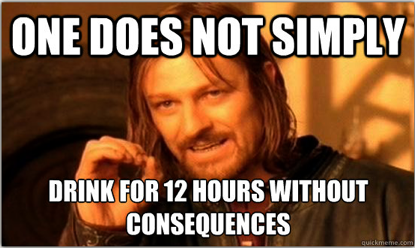
by Devika Agarwal (part of the 2nd Annual SpicyIP Fellowship applicant series)
When internet memes started doing the rounds on social networking sites one would have never imagined that it would become such a powerful tool for expressing ideas or leading campaigns. In this post we shall explore the copyright issues involved in creating and sharing an internet meme, the Indian law on the point and the circumstances under which the act of creating/sharing a meme can be considered ‘fair use’.
For the uninitiated, a meme is defined as ‘an idea, behaviour, style, or usage that spreads from person to person within a culture’. Online memes have gained popularity on social networking sites recently and can be used for various purposes such as campaigns, advertisements and satire. The popularity of a meme lies in its ability to communicate an idea in the format of tongue-in-cheek humour.
When we explore the copyright issues in a meme, we look at two aspects: the creation of a meme and the sharing of the meme.
When we talk about creation of a meme, we need to determine whether the meme that has been created constitutes copyright infringement in itself or can it be considered an “original work”. Here, two situations may arise- one, the meme contains an image from a movie/photo (copyright of which vests in another person) and second, the meme is an “original meme” (where the copyright in the image vests in the person who has created the meme).
An example of the former case is:
One can recognize the image in the meme. It is a still of the character, Boromir, from the popular fantasy movie ‘Lord of the Rings’ (remember his line “One does not simply walk into Mordor”?). In such cases, the copyright in the image belongs to the producers of the film and the producers might be able to injunct sharing of this meme if they can prove that it infringes their copyright.
The stand that may be taken by the person creating the meme is that the meme created by taking the image from the film is an original work in itself; after all he created the meme by exercising his own skill, labour and judgment.
However, this argument is unlikely to hold much ground in India; s.14 (d) (i) of The Copyright Act, 1957 gives a copyright-holder (in the case of a cinematograph film) the right to “make a copy of the film, including- a photograph of any image forming part thereof…”. This means that in creating such a meme, the person must necessarily seek permission from the film producer to use the image.
Further, sharing the meme by others would then amount to a continuing tort, where each time the meme is shared it would give rise to a fresh cause of action to the plaintiff.
When somebody comes up with a meme using his own photograph, the meme so created will obviously not attract any copyright infringement because the rights in the image as well as copyright in the “memed” image vest in the same person. Such a meme can be said to be an artistic work which is created by exercising one’s own skill, labour and judgment and does not impinge upon an existing copyright.
In such cases too, the sharing of the meme may amount to copyright infringement and the creator of the “memed” image will be able to injunct others from using his meme without a license.
FAIR USE:
The purpose of sharing memes is to promote an idea within the online community and one may always argue that the act of creating/sharing memes should be protected under the fair use provision. This is exactly what Australian Digital Alliance has been lobbying for in Australia where people have been prosecuted for creating/sharing memes online. It is interesting to note that while s.41A of the Copyright Act 1968 in Australia allows for ‘fair dealing for purpose of parody or satire’, this exception is available specifically for a literary, dramatic, musical or artistic work.
S.52 (1) (a) of The Copyright Act of India allows for ‘fair dealing with any work’ for the purpose of private or personal use, criticism or review etc. Even though there is no express mention of parody or satire as an exception under the ‘fair use’ provision, in Blackwood & Sons Ltd. v. A.N. Parasuraman [AIR 1959 Mad. 410.] it was held that in order to constitute a fair dealing, there must be no intention on the part of the alleged infringer, to compete with the copyright holder of the work and to derive profits from such competition and also, the motive of the alleged infringer in dealing with the work must not be improper.
The Kerala HC in Civic Chandran v. Ammini Amma [1996 PTR 142] held that a parody, so long as it copies from the original in order to criticise it, does not constitute improper use of the original and thus qualifies as fair dealing.[See more on this here].
The problem however will arise if the meme is used for the purpose of advertising or to generate profits by another company; this is because the meme is now used not for the purpose of satire but for commercial exploitation. This is precisely why Warner Bros. ran into legal trouble earlier this year when it incorporated Nyan Cat and Keyboard Cat (two extremely popular memes) as characters in its video game ‘Scribblenauts’. Warner Bros. lost the suit to the creators of the memes.
One may conclude that the use of memes on social networking sites is generally ‘fair use’; however, in case of advertising campaigns the advertisers must seek a license from the copyright-holder before cashing in on the popularity of the meme lest it amounts to copyright infringement.
*
Devika Agarwal is a 4th year student at RML National Law University, Lucknow.
This post first appeared on SpicyIP. Crossposted with permission.






























